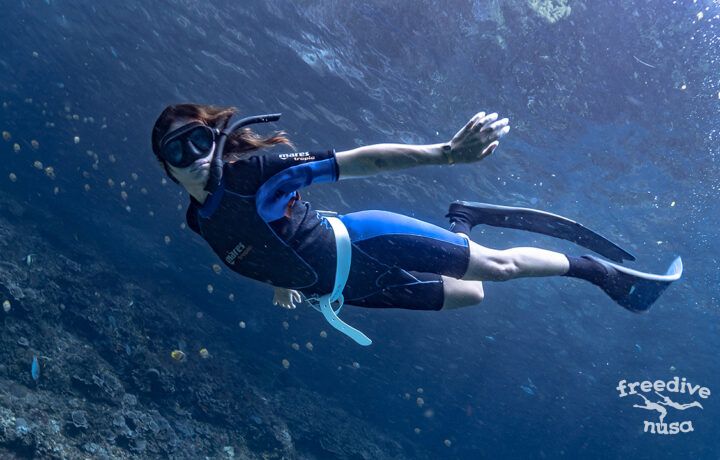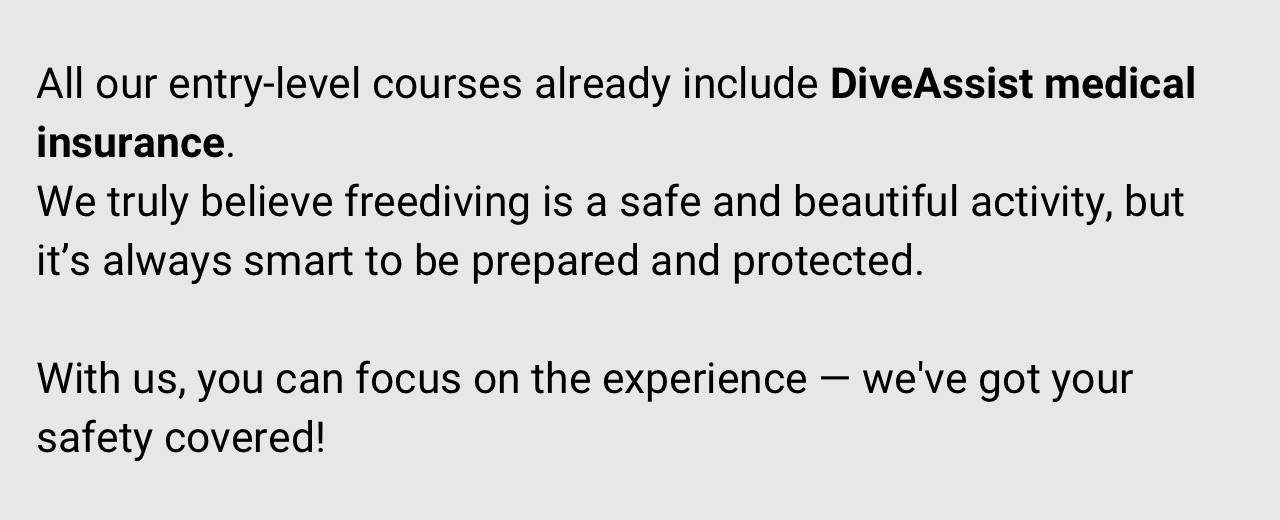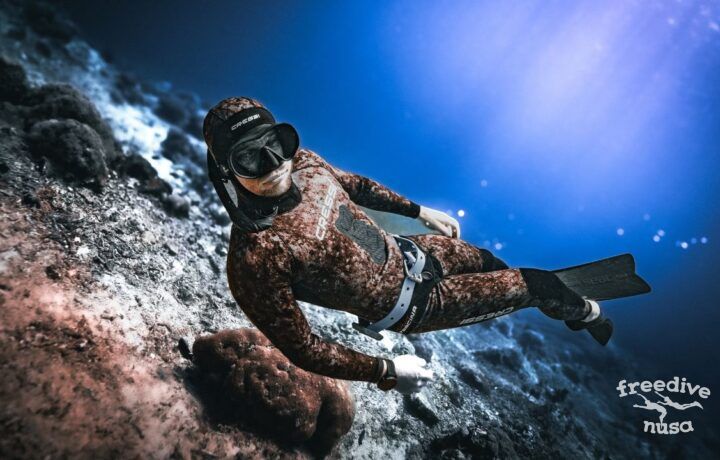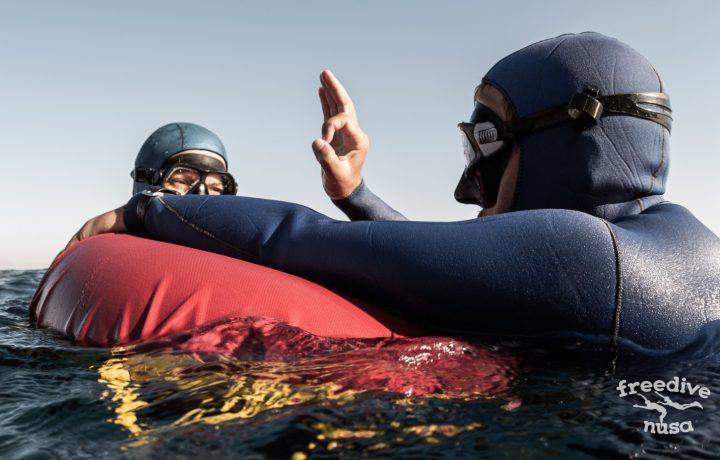Congratulations, you enrolled on a freediving course! You’re in for a lot of fun, inner discoveries, and enthralling underwater sceneries. We’re sure you don’t want to miss a thing! We’ve prepared some recommendations to make sure your course runs smoothly and efficiently regardless of your level:
1. Get used to open water
If you’re a confident swimmer who enjoys snorkeling, that’s great! You’re bound to like freediving and the freedom it gives you. If not, try swimming with a mask and snorkel first to make sure it feels comfortable. If you don’t feel relaxed in the water at all and swimming is not your strong suit, be sure to tell the school in advance. A Watsu session before the course may help you get used to the water and learn to relax. Also consider taking swimming lessons in the pool. Otherwise, freediving might feel a bit too overwhelming.
2. Consult with a doctor
When you register for a course, you’re sent a medical form. Read it and check if you have any health conditions mentioned in the form. If you do, consult a doctor first to make sure you have no contraindications for freediving and holding your breath. Safety of our students is our priority, so if you don’t get a clearance from your doctor, the instructors may not allow you to participate in the course.
3. Rest well before the course
A freediving course means a lot of new information and exercises involving muscles you probably didn’t even know existed. So let your body restore all its resources before you start. If you’ve recently been sick, wait until you fully recover; if you travel by plane, arrive a couple of days before the start of the course to give yourself time to rest after the flight and acclimatize. And get a good night’s sleep the night before the course to feel fresh! This alone will significantly improve your performance.
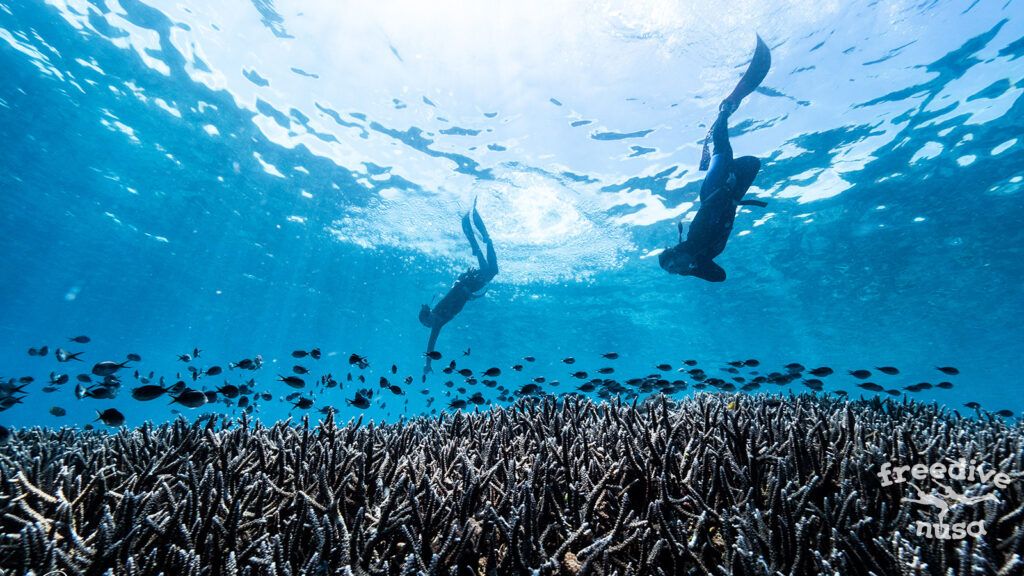
4. Avoid excessive physical activity
It doesn’t mean abandoning all exercise completely. If you’ve been going to the gym or taking dance classes several times a week for months or even years, continue with your routine. But avoid anything too strenuous. In short: morning run — yes; marathon — no. Swimming in the pool — yes, the Bosphorus Cross-Continental Swim — no.
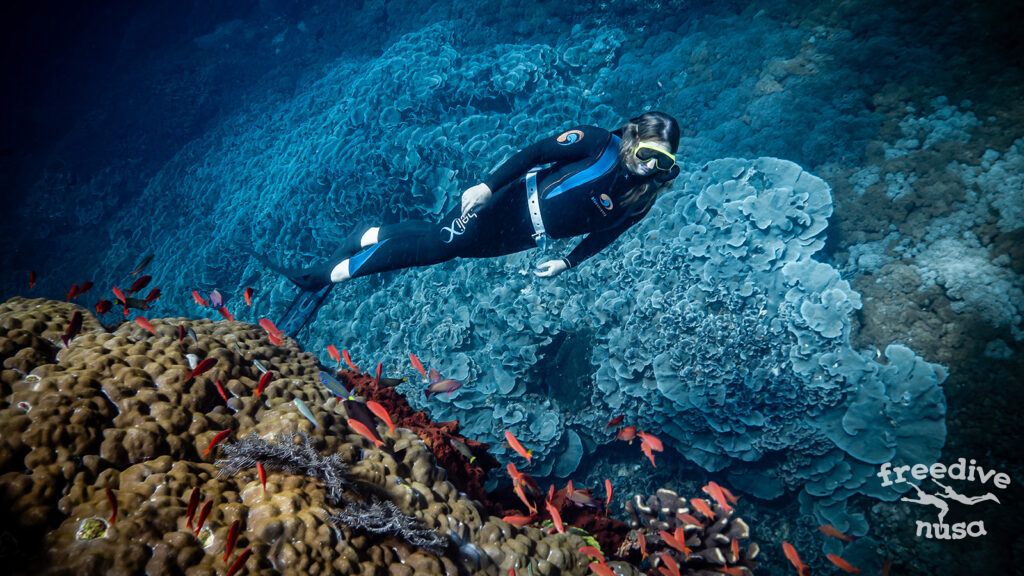
5. Avoid air conditioning
While ice freediving has its appeal, for the most part, freediving schools are located in warm countries. We at Freedive Nusa also chose the coast of Nusa Penida as our headquarters. This means it will be hot — and you might be tempted to cool yourself with air conditioning. But AC is no bro for a freediver. It dries out the air in your room, which dries out your mucous membranes. Then a gust of cold air attacks them. This makes you susceptible to infections, but even if your immune system is strong enough, this will inevitably lead to swelling of your mucous membranes. As a result, you might have problems equalizing for at least a day.
6. No alcohol
How comfortable your dives are largely depends on how relaxed you feel while holding your breath. Even small amounts of alcohol cause intoxication, which makes holding your breath difficult and unpleasant. Incidentally, alcohol also leads to increase production of mucus, which may obstruct your Eustachian tubes and make equalization more difficult. So we recommend excluding alcohol during training. You can celebrate after your course is over.

7. Read the manuals
Now that you’ve refrained from partying and exhausting physical activity in anticipation of the course, you have lots of free time! Spend it on reading the freediving manuals and watching the videos you received when you got registered for the course. Browsing through the online materials will make it easier to follow what your instructor’s telling you, and the special exercises for freediving will help you get better control of the muscles you will need during the course.
8. Cut down on tea and coffee
Tea and coffee contain caffeine, which increases your heartrate — while the natural response to a breathhold is lowered heartrate. So try to skip your morning cup before going diving. Some people are sensitive to dairy products, sugar, and pastry as they cause more mucus — which is bad for equalization. If you suspect you might be one of them, pay attention to your diet.

Following these recommendations helps you take the most out of your course, whether it’s PADI, Molchanovs, or SSI, Surf Survival or any freediving training. But if you can’t imagine your life without a cup of coffee and mere reading about a decaffeinated morning terrifies you, just drink it and don’t torture yourself. Changing your habits abruptly will only lead to stress, and stress is much worse than not following the guidelines. Remember the key for how to train to freedive is for you to relax and enjoy!
Here at Freedive Nusa, we offer a long and the most comprehensive 3-day course for beginners! At the end of the course, most of the students can hold their breath for more than 2 minutes and dive as deep as 15-20 meters in a single breath.
Are you interested in learning freediving?
Book your first course with us!

